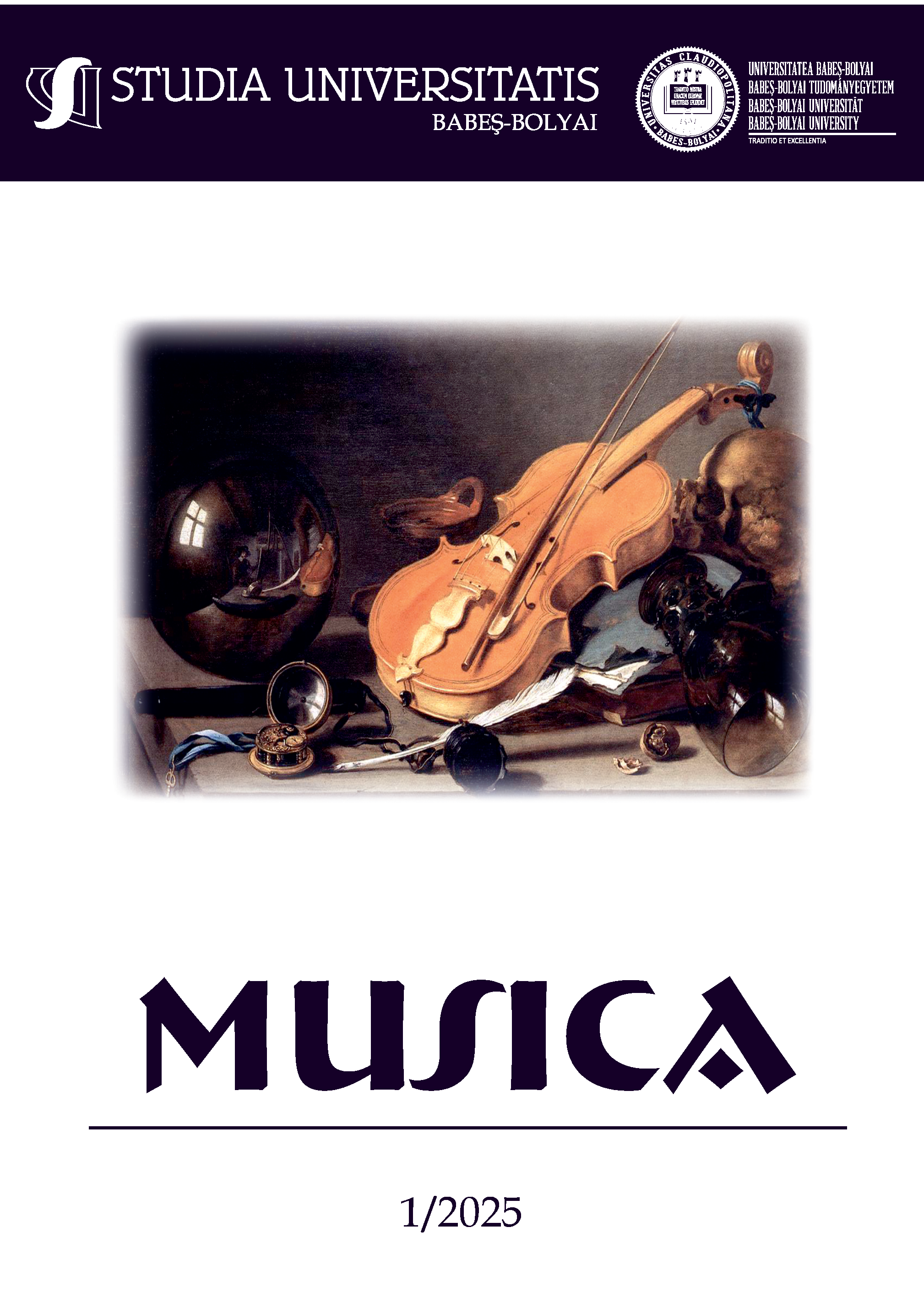Cognitive, Emotional and Methodological Aspects of Musician-Performer’s Thinking
DOI:
https://doi.org/10.24193/subbmusica.2025.1.15Keywords:
thinking, cognitive processes, methodology, psychology of creativityAbstract
SUMMARY. The way of thinking of a performing musician is a complex and multifaceted process that combines rational, intuitive, and emotional aspects. It not only ensures the effectiveness of performing activities, but also determines the artistic depth and individuality of the interpretation of a musical work. Understanding the specifics of performing thinking is important for the formation of a musician’s professional skills as it is carried out through mental processes, interaction with musical material, interpretation of the composer’s idea and emotional and aesthetic connection with the listening audience. The relevance of the study is based on the need for a comprehensive understanding of these aspects in the context of modern performing practice, which allows not only to deepen the theoretical understanding of the specifics of performing thinking, but also to develop practical recommendations for improving the professional skills of musicians.
References
1. Asafiev, Boris. Selected Works: 5 v. Moscow: SSSR Academy of Sciences, (Vols. 5), 1957, 388 p.
2. Davydov, Mykola. Theoretical foundations of formation of performance skills of an accordionist. Kyiv, Musical Ukraine, 2004, 240 p.
3. Johnson, Daniel C. Holistic musical thinking: a pedagogical model for hands-on and heart-felt musical engagement. Series: Routledge new directions in music education series. New York, NY: Routledge, 2024, 118 p.
4. Krausz, Michael (ed.). The Interpretation of music: philosophical essays. Oxford: Oxford University Press, 1993, 288 p.
5. Markova, Olena. Questions of the theory of performance: materials for the theory of performance theory for masters and graduate students. Odessa: Astroprint, 2002, 128 p.
6. Moskalenko, Viktor. The creative aspect of musical interpretation (to the problem of analysis). Kyiv, Muzinform, 1994, 157 p.
7. Pyaskovskiy, Igor. The logic of musical thinking. Kyiv, Musical Ukraine, 1986, 180 p.
8. Samitov, Viktor. Theoretical foundations of professional thinking of a performing musician as a criterion of professional skill. Lutsk, Volyn regional printing house, 2011, 272 p.
9. Zaiets, Vіtalіi. Performance style as comprehensive artistic method in the field of music. Studia UBB Musica, LXVIII, 2, Cluj-Napoca, 2023, р. 287-295.
Downloads
Published
How to Cite
Issue
Section
License
Copyright (c) 2025 Studia Universitatis Babeş-Bolyai Musica

This work is licensed under a Creative Commons Attribution-NonCommercial-NoDerivatives 4.0 International License.



